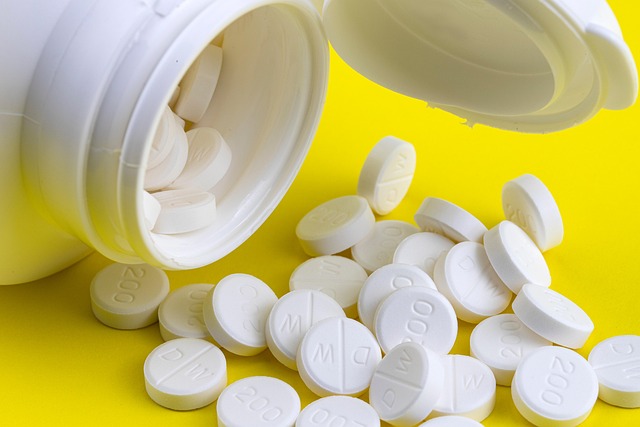A Comprehensive Guide to ADHD Medication: Types, Selection, and Therapeutic Effects
ADHD medication is pivotal in effectively managing Attention Deficit Hyperactivity Disorder for many individuals. This treatment can significantly enhance focus and attention when combined with therapy and lifestyle modifications. With stimulant and non-stimulant options, understanding the available ADHD medication types is crucial for tailoring a personalized treatment plan. Always consult with a healthcare provider to explore the best ADHD medication suited to your needs, considering potential side effects and the appropriate dosage for optimal results.

ADHD medication represents one of the most researched and effective treatment approaches for managing attention deficit hyperactivity disorder symptoms. The pharmaceutical landscape for ADHD has evolved significantly over the past decades, offering patients multiple therapeutic options tailored to individual needs and circumstances.
Common Types of ADHD Medications and Their Therapeutic Characteristics
ADHD medications fall into two primary categories: stimulants and non-stimulants. Stimulant medications work by increasing levels of dopamine and norepinephrine in the brain, neurotransmitters crucial for attention and focus. These medications typically show effects within 30-60 minutes and can last anywhere from 4-12 hours depending on the formulation. Non-stimulant medications operate through different mechanisms, often targeting norepinephrine specifically or affecting other neurotransmitter systems. These medications may take several weeks to reach full therapeutic effect but offer benefits for individuals who cannot tolerate stimulants or have specific medical contraindications.
Stimulant ADHD Medications and Non-Stimulant ADHD Medications
Stimulant medications include methylphenidate-based drugs and amphetamine-based formulations. Methylphenidate medications are available in immediate-release and extended-release formulations, providing flexibility in dosing schedules. Amphetamine-based medications similarly offer various release profiles and are often considered when methylphenidate options prove ineffective or cause intolerable side effects. Non-stimulant alternatives include atomoxetine, which selectively inhibits norepinephrine reuptake, and newer options like viloxazine. Alpha-2 agonists such as guanfacine and clonidine represent another non-stimulant category, originally developed for blood pressure management but found effective for ADHD symptoms, particularly hyperactivity and impulsivity.
List of ADHD Medications and How to Choose the Right One
Selecting appropriate ADHD medication involves multiple factors including symptom severity, patient age, medical history, potential drug interactions, and lifestyle considerations. Healthcare providers typically begin with stimulant medications due to their established efficacy and rapid onset of action. The choice between methylphenidate and amphetamine-based options often depends on individual response patterns and side effect profiles. Non-stimulant medications become primary considerations for patients with substance abuse history, cardiovascular concerns, or severe stimulant side effects. The selection process involves careful monitoring and potential trial periods with different medications to identify optimal therapeutic outcomes.
Side Effects of ADHD Medications and Natural ADHD Remedies
ADHD medications can produce various side effects ranging from mild to significant. Common stimulant side effects include appetite suppression, sleep difficulties, mood changes, and potential growth impacts in children. Cardiovascular effects such as increased heart rate and blood pressure require monitoring, particularly in patients with pre-existing conditions. Non-stimulant medications may cause different side effect profiles, including nausea, fatigue, or liver function changes with certain medications. Natural approaches to ADHD management include dietary modifications, regular exercise, behavioral therapy, mindfulness practices, and structured environmental changes. While these natural strategies can complement medication treatment, research supporting their standalone effectiveness remains limited compared to pharmaceutical interventions.
Precautions During ADHD Medication Treatment
Successful ADHD medication management requires ongoing medical supervision and regular monitoring. Healthcare providers typically schedule follow-up appointments to assess therapeutic response, monitor side effects, and adjust dosages as needed. Growth monitoring in children, cardiovascular assessments, and periodic medication holidays may be recommended depending on individual circumstances. Drug interactions represent another important consideration, as ADHD medications can affect the metabolism of other drugs or be affected by concurrent medications. Patients should maintain open communication with healthcare providers about all medications, supplements, and health changes during treatment.
| Medication Category | Example Medications | Typical Cost Range (Monthly) |
|---|---|---|
| Stimulant (Generic) | Methylphenidate, Amphetamine | $30-100 |
| Stimulant (Brand) | Adderall XR, Concerta | $200-400 |
| Non-Stimulant | Atomoxetine, Guanfacine | $150-350 |
| Newer Non-Stimulants | Viloxazine | $300-500 |
Prices, rates, or cost estimates mentioned in this article are based on the latest available information but may change over time. Independent research is advised before making financial decisions.
The journey toward effective ADHD management involves collaboration between patients, families, and healthcare providers to identify optimal treatment strategies. While medication often forms the cornerstone of ADHD treatment, comprehensive approaches incorporating behavioral interventions, educational support, and lifestyle modifications typically yield the best outcomes. Regular evaluation and adjustment of treatment plans ensure continued therapeutic benefit and minimize potential adverse effects throughout the treatment process.
This article is for informational purposes only and should not be considered medical advice. Please consult a qualified healthcare professional for personalized guidance and treatment.



